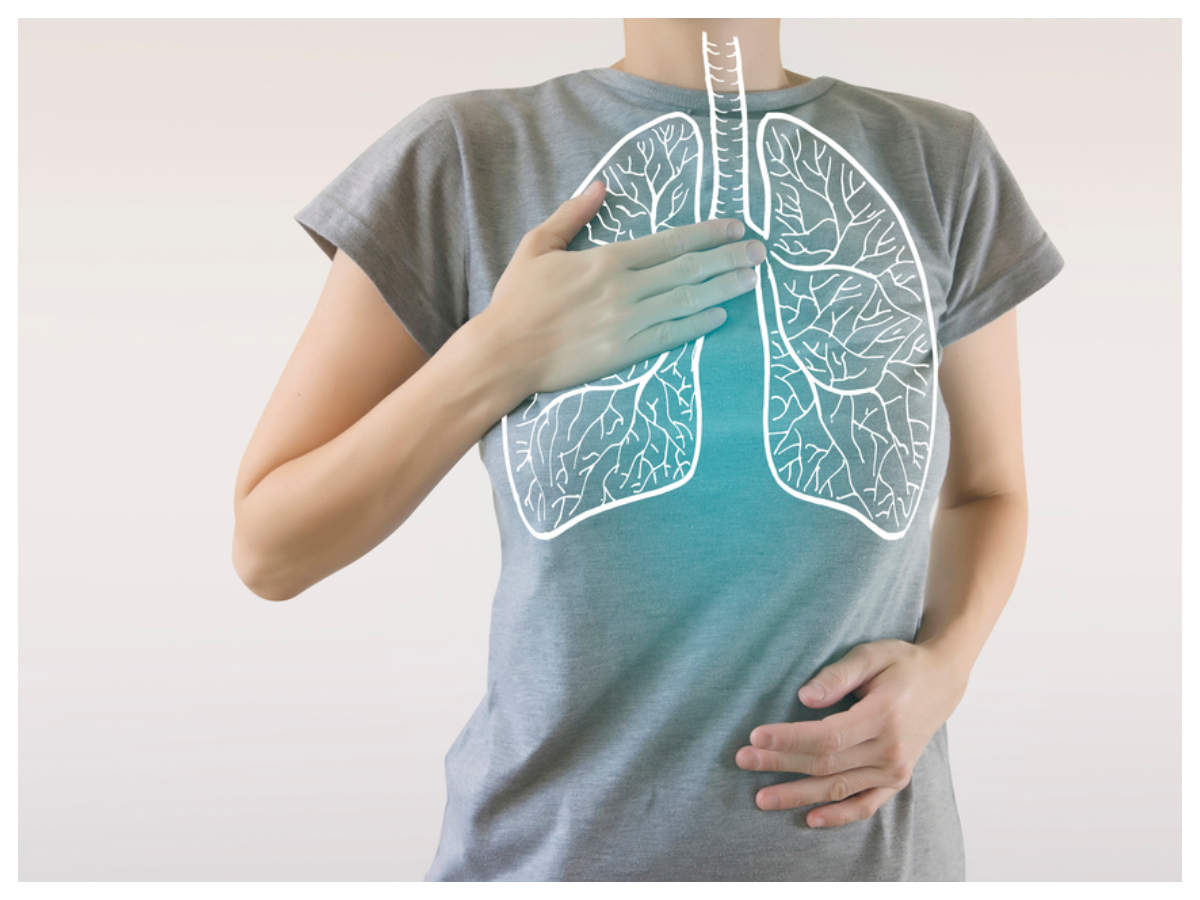
Surat: With an aim to prevent doctors from getting infected with coronavirus, a mother-daughter medico-technical team studied the AI-based Covid scanning to identify infection in a patient at the preliminary stage without any physical intervention of a doctor.
In their study, the duo developed a concept that it can be verified at initial level if a person has infection through visual examination of throat by an automated AI scanner. The Study aims at prevent doctors who are already limited in numbers from getting infected from exposure to coronavirus during treatment of Covid positive patients.
Dr Upena Dalal, professor in electronics department at Sardar Vallabhabhai National Institute of Technology (SVNIT) and her daughter Dr Parima Dalal Parikh, a paediatrician, undertook a study of throat infections in Covid-19 patients and developed a method to examine it electronically by a AI-based scanner. The duo took a lead from Krishna Ojha and Ekta Arora, two BTech students of Indian Institute of Information Technology (IIIT), Surat, who developed an initial model of AI based Covid19 scanner.
“The students’ AI-based Covid-19 scanner notices basic symptoms of sneezing, coughing, runny nose and chest X-ray. But chest infection is developed at a later stage and in that condition a patient cannot even stand properly,” explained Dr Parikh.
But during their study, the duo found that tonsillitis with some specific characteristics can suggest if it is due to coronavirus.
“After studying the findings of doctors and examination details of coronavirus at the initial infection stage, we arrived at a conclusion that if the AI-based scanner can notice and identify the infected throat, it will be more effective for treating it at once,” said Dr Dalal.
The mother-daughter team has also shared their findings with the two IIIT students. “Now we are working on use of infra-red thermal and optical camera to examine throat infections. With this, a patient can be examined by the scanner without any doctor coming in direct contact with the infected person,” Dr Dalal added.
However, the study is still on the theory table without having conducted any clinical validation as yet.
The team is now working on to get support from the MHRD to develop the project at an advance level which can be used in hospitals and health centres.
In their study, the duo developed a concept that it can be verified at initial level if a person has infection through visual examination of throat by an automated AI scanner. The Study aims at prevent doctors who are already limited in numbers from getting infected from exposure to coronavirus during treatment of Covid positive patients.
Dr Upena Dalal, professor in electronics department at Sardar Vallabhabhai National Institute of Technology (SVNIT) and her daughter Dr Parima Dalal Parikh, a paediatrician, undertook a study of throat infections in Covid-19 patients and developed a method to examine it electronically by a AI-based scanner. The duo took a lead from Krishna Ojha and Ekta Arora, two BTech students of Indian Institute of Information Technology (IIIT), Surat, who developed an initial model of AI based Covid19 scanner.
“The students’ AI-based Covid-19 scanner notices basic symptoms of sneezing, coughing, runny nose and chest X-ray. But chest infection is developed at a later stage and in that condition a patient cannot even stand properly,” explained Dr Parikh.
But during their study, the duo found that tonsillitis with some specific characteristics can suggest if it is due to coronavirus.
“After studying the findings of doctors and examination details of coronavirus at the initial infection stage, we arrived at a conclusion that if the AI-based scanner can notice and identify the infected throat, it will be more effective for treating it at once,” said Dr Dalal.
The mother-daughter team has also shared their findings with the two IIIT students. “Now we are working on use of infra-red thermal and optical camera to examine throat infections. With this, a patient can be examined by the scanner without any doctor coming in direct contact with the infected person,” Dr Dalal added.
However, the study is still on the theory table without having conducted any clinical validation as yet.
The team is now working on to get support from the MHRD to develop the project at an advance level which can be used in hospitals and health centres.

Coronavirus outbreak
Trending Topics
LATEST VIDEOS
City
 Watch: Clash breaks out between Punjab Police and shopkeepers for not following lockdown
Watch: Clash breaks out between Punjab Police and shopkeepers for not following lockdown  Chhattisgarh: Nisha Jindal, with 10,000 Facebook fans, turns out to be a man
Chhattisgarh: Nisha Jindal, with 10,000 Facebook fans, turns out to be a man  COVID-19: Cops attacked and held hostage in Madhya Pradesh's Rajgarh for enforcing social distancing
COVID-19: Cops attacked and held hostage in Madhya Pradesh's Rajgarh for enforcing social distancing  Will get back to my duty once I recover fully, says Punjab cop whose hand was chopped off
Will get back to my duty once I recover fully, says Punjab cop whose hand was chopped off
More from TOI
Navbharat Times
Featured Today in Travel
Quick Links
Kerala Coronavirus Helpline NumberHaryana Coronavirus Helpline NumberUP Coronavirus Helpline NumberBareilly NewsBhopal NewsCoronavirus in DelhiCoronavirus in HyderabadCoronavirus in IndiaCoronavirus symptomsCoronavirusRajasthan Coronavirus Helpline NumberAditya ThackerayShiv SenaFire in MumbaiAP Coronavirus Helpline NumberArvind KejriwalJammu Kashmir Coronavirus Helpline NumberSrinagar encounter
Get the app



